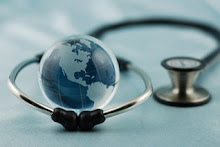There are certain important predisposing risks to developing a DVT.
- Long Flights
- Underlying cancer
- Previous history of DVT
- Birth control pills
- Obesity
- Recent hospitalizations
- Several other conditions.
So from the list we can see that this is a condition that is not exclusive to the medical traveler.
There are quite a few things that can be done to reduce the chance of this condition. First walking, simply walking is very helpful it pumps the blood out of our legs and back to the heart. Stroll around before the flight, wander up and down the aisles during the flight and walk after the flight. Getting up several time to move around when it is acceptable to the flight crew is important.
Flexing your feet. If you are unable to walk due to flight conditions or other restrictions, simply pumping your calves mimics the walking. It may be as effective, but it is likely better than nothing. You can also do this far more frequently than walking.
Compressive stockings are available to purchase. These support hose fit more snugly and increase the pressure in the lower legs. This helps to move blood out of the legs and back to the heart.
Importantly, none of these require a physician to assist you with or guide you. These can be performed easily, by nearly anyone.
The next options require some guidance by a physician. Even aspirin, which is a blood thinner should be taken with a medical travel physician's advice. This may seem a simple medication, but if you thin your blood some surgeries may be delayed. Some blood thinners: wafarin (coumadin), clopidrogel (Plavix), enoxaparin (Lovenox) and others are more aggressive therapies. These require active physician oversight and written orders to administer. While there may be a role for these medications, it is likely small.
The benefit to all these medications is a reduction in the risk of DVT. There is always a downside. By thinning your blood you may find yourself bruising more easily. More significant bleeding can occur internally. They can also interact with other medications you are taking.
Begin with the first three and consult a medical travel physician for advice on the more involved options.
Travel Safe and Be Well,
Jim McCormick, MD
Premiere Medical Travel Company


No comments:
Post a Comment